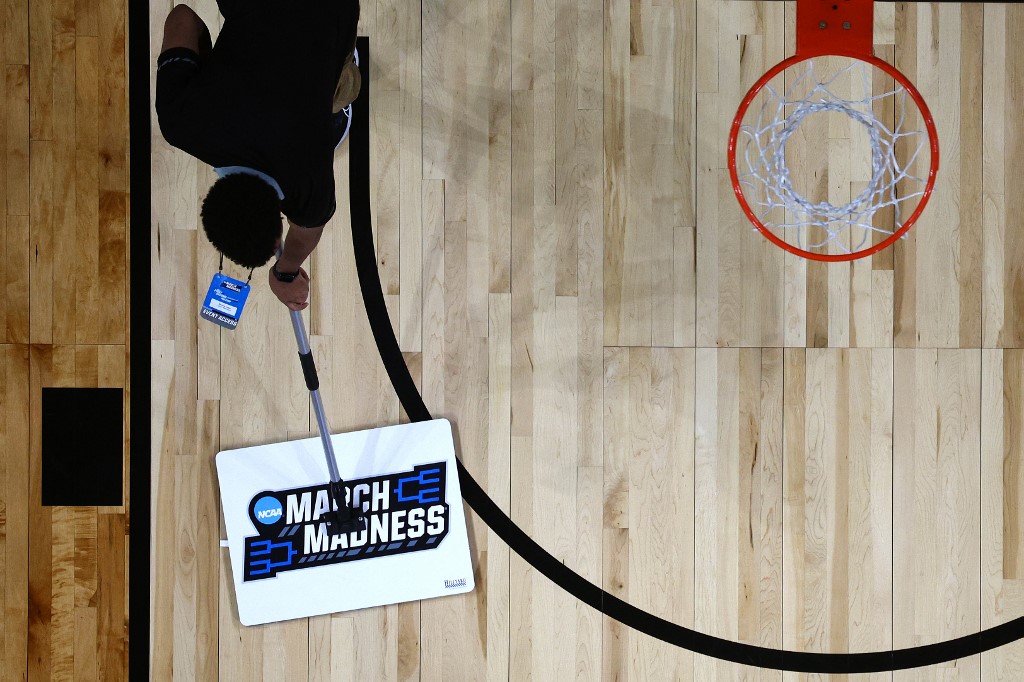Robinhood Partners With Kalshi Entering March Madness Prediction Market
-
 Bookmakers Review
Bookmakers Review
- March 26, 2025

US-based financial technology company Robinhood has teamed with prediction trading market platform Kalshi to enter the controversial sports trading market by offering its customers the opportunity to “bet” on March Madness in all 50 states.
March Madness Contracts
The blurry line between prediction trading platforms offering sports events and sportsbooks’ betting menus performing the same function has triggered a blizzard of regulatory and legal objections.
Unlike sportsbook odds and point spreads that are locked in at the moment of the wager, sports trading contracts operate via dynamic odds with the price falling or rising depending on the status of the game, much like silver, gold or any other commodity.
However, the courts have been at odds as to whether trading platforms like Kalshi are legally allowed to circumvent state rules governing sportsbooks and allow customers to essentially buy contracts on sports teams. The latest appellate court ruling was in favor of Kalshi, which is why the company is allowed to continue to operate in the sports prediction market arena.
Nevertheless, Robinhood is wading into the sports event trading market after pulling its Super Bowl 59 contracts, in partnership with Kalshi, at the behest of the Commodity Futures Trading Commission (CFTC), the same agency that sued Kalshi to prohibit it from entering the sports betting market.
“We believe in the power of prediction markets and think they play an important role at the intersection of news, economics, politics, sports, and culture,” JB Mackenzie, VP & GM of Futures and International at Robinhood, said in a statement. “We’re excited to offer our customers a new way to participate in prediction markets and look forward to doing so in compliance with existing regulations.”
Critics Voice Opposition
The upcoming men’s and women’s NCAA basketball tournaments are expected to attract over $3 billion in bets at US-licensed sportsbooks, and prediction market trading platforms like Kalshi believe they are governed by federal regulations. However, critics like state regulatory agencies, professional sports leagues and even some lawmakers contend these platforms are circumventing state industry guidelines.
The CFTC is expected to hold a roundtable discussion regarding the state of the futures market trading industry and its immersion into the sports betting realm later this month. The American Gaming Association argues these platforms are not in compliance nor are they licensed under the same rules governing sportsbooks.
“Legal gaming operators are subject to stringent regulations, consumer protections, and responsible gaming mandates that prediction markets currently do not adhere to,” the AGA wrote in its submitted comments ahead of the roundtable meeting.
Nevada Congresswoman Dina Titus, co-chair of the Congressional Gaming Caucus, wrote in a letter to the CFTC that prediction markets such as Kalshi’s could “create a backdoor way to legalize sports betting in states that have not authorized it” and that it contradicts the CFTC’s initial ruling that it is “not a gaming regulator.”
However, with the new Trump administration, the CFTC has apparently softened its stance, with acting CFTC Commissioner Caroline Pham issuing a press release stating, “Prediction markets are an important new frontier in harnessing the power of markets to assess sentiment to determine probabilities that can bring truth to the Information Age. The CFTC must break with its past hostility to innovation and take a forward-looking approach to the possibilities of the future.”










